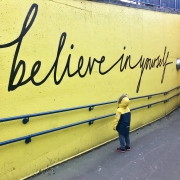How to Respond When You Get Triggered
Written by Megan Bayles Bartley, MAMFT, LMFT
The holidays are upon us and that usually means lots of time with our extended family. 2020 has no doubt brought an extra helping of limitations and pressure for us to navigate this season.
Do you dread this time of year or certain aspects of it? Do you wish you had ways to cope with the parts you don’t enjoy? Is there that certain someone who triggers something within you every time you see or talk to them?
Remember this: You only have control over yourself…how you think about things, your behaviors, how you are feeling, and what you say.
- Act, don’t react to the times when you are triggered. his means slowing yourself down enough to regain control of the situation by choosing how you want to respond (if at all) to inappropriate, mean comments or people. Have a plan for how to respond before you are in the situation. “If he says something mean, I will just look at him blankly while taking some deep breaths to soothe myself. Or if I decide I can’t not say anything, I’ll just say ‘Huh, that’s an interesting perspective, or Huh, that’s a good question, I’ll have to think about that.'”
- Acknowledge and validate your feelings that get triggered, “Of course I want to scream at her for commenting about my weight, that was inappropriate for her to say.” Take a deep breath and know that you have zero control over that other person and instead you will take control of yourself and respond appropriately, if at all.
- Let yourself off the hook. Often we think we have to respond to negative comments or inappropriate questions so we can defend ourselves or to make sure the other people in the conversation don’t feel awkward. Remember to be your best adult self and sometimes saying nothing at all communications more than we could ever say with words. In fact, if we don’t respond, it shifts the awkwardness back to the sender.
Ultimately be gentle and tender with yourself and others. Allow each new moment to unfold as it needs to. Trust that you will do your best in each new moment and allow others the opportunity to be their best in each new moment.














